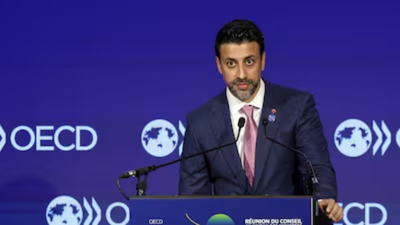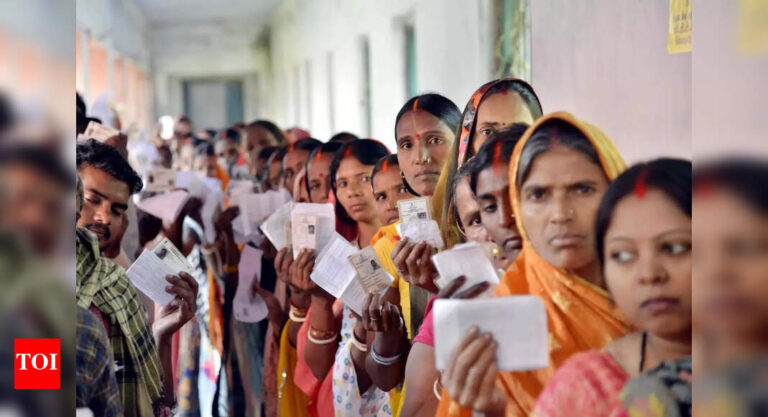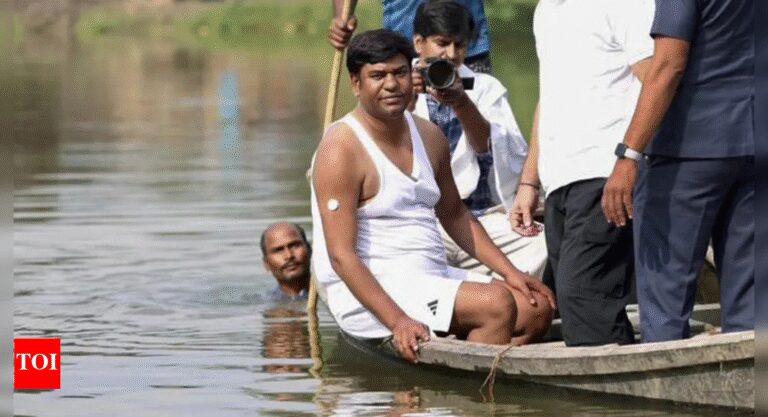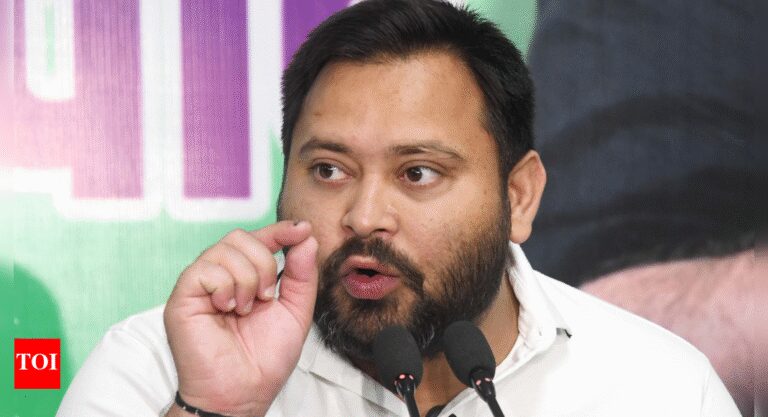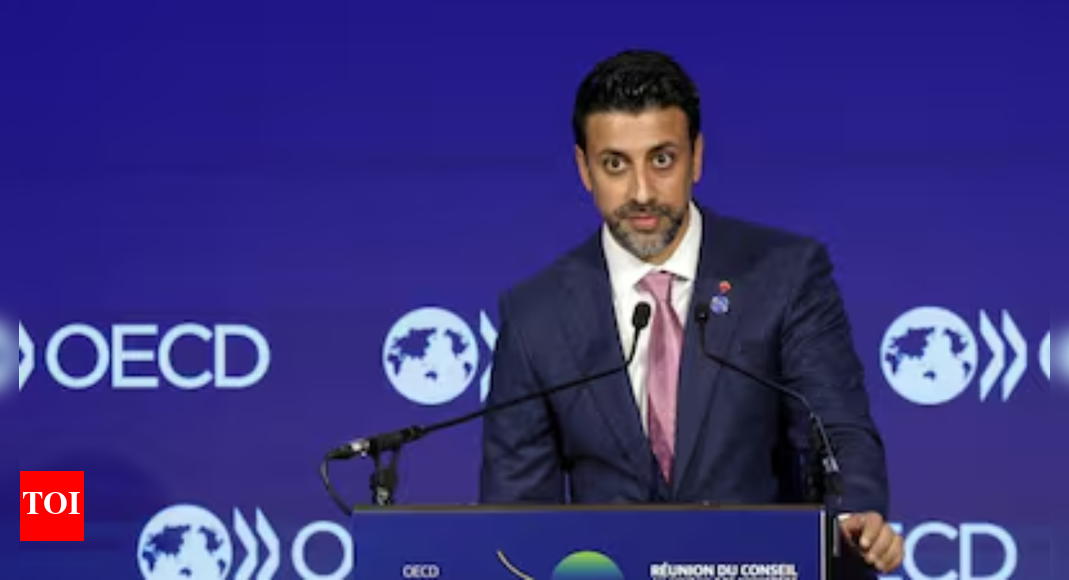
Canada’s minister for international trade Maninder Sidhu, who is in India to take forward the bilateral dialogue on trade and investment ties, says that his government is looking for skilled workers from foreign countries, focusing more on quality. In an interview, he tells TOI that India and Canada are taking one step at a time and assessing the changes in the global economy before moving ahead with talks on a trade deal. Excerpts:How was the interaction with Mr Piyush Goyal?We had a great meeting today to focus on a lot of the opportunities; opportunities around aerospace, energy, AI and critical minerals. These are all critical sectors for India. As India grows, Canada is there in complementary services and that’s what we discovered today in terms of how fast India is growing. India needs 70% more energy by 2040. Canada is building the projects to get there. We have seven LNG projects in various phases of development. It was our first trade and investment dialogue at the ministerial level in many years. We need to continue building on that energy. Prime Minister Carney has given me a mandate, an ambitious target of $300 billion of (additional) non-US exports within the next 10 years and I’m looking at every market to see how we can continue diversifying and building on our trade partnerships. India is a great partner with $30 billion of two-way trade right and there’s room to grow.How far are we from resuming the talks on a bilateral trade deal?Right now, we’re identifying opportunities and hopefully, in the near future we’ll be able to get into the trade conversations, taking investment and trade to the next level. We also need to bring the business community along with us.When the talks were halted, it had reached a certain level. So, does that mean that you’re reviewing what was agreed upon till then?Look, this is a new government, new Prime Minister, new mandate, new focus. As you’ve seen from Prime Minister Carney, it’s new energy, it’s starting afresh. The context has changed from even six months ago. You know, President Trump’s tariff policies have really shifted things globally. So, we’re in a different frame right now. We just wrapped up a trade agreement with Indonesia a few weeks ago and launched negotiations with Thailand, with the Philippines. Two weeks ago, I ran into minister Jaishankar at the Asean Summit in Malaysia. We had a good conversation. Canada is looking at every opportunity, but now is the window that we can use. Our geography with the US Is not going to change. They’ll always remain important. We have to match the energy from businesses in Canada. It was very positive to hear from minister Goyal that he’s looking to come to Canada early next year with a delegation so we can continue building on this. Minister Jaishankar was in Canada yesterday and I’m here today. You know, there’s this sustained energy that we need to continue building upon because it’s not going to happen overnight.What do you make of foreign minister Anita Anand’s remarks on progress in the normalization of the relationship being contingent upon the law enforcement dialogue?The minister’s visit was positive, and it laid the groundwork for what I’m doing now. The safety and security of citizens of both countries is paramount. So those conversations are encouraging that law enforcement agencies are talking to each other to resolve some of the challenges. My job as an economic minister is to focus on the trade and investmentsDid you discuss India’s purchase of Russian oil?We talked about alternative sources of energy and Canada can provide that. As you look for stable, reliable, long-term supply, Canada is that. These contracts are done for 10, 15, 20 years, now is the time to get in early. You’ll notice in LNG, different countries have invested that those countries are now receiving the first shipments.For India, visas are an important issue especially for professionals and business visitors in trade agreements. Can you give us a sense of what the visa policy is going to be?Look, immigration comes up quite a lot; look at the diaspora, it’s huge in both countries. We have a lot of family and friends visiting each other. That’s why I sat down with Air Canada to talk about more flight options. In Canada, 13% of our trade flows through our airports. The Prime Minister has been very clear on immigration. It’s a focus on economic immigration, a focus on skilled immigration. So making sure we’re creating pathways to permanent residency for those skilled immigrants is very important for Canada’s growth plans. When you look at what’s happening to the south of us with the H1B anxieties, it’s in our budget. It’s still early in the conversations, but we’re looking at different pathways to attract technical capabilities, skilled capabilities to Canada. The PM’s focus is how do we build Canada. You have your localized talent, but you also need to bring in some talent that can add to that. So a part of that is looking at India and maybe something around the H1B programme is very important.And this would be STEM and similar skills?Yes, STEM, skilled workers. We need nurses and doctors. We have specialized pathways. Are we going to continue that as a government? These are all considerations that we were looking at because in the past, it was more about quantity. With us, yes, the quantity, quality is also important. There are no caps on postgraduates, they can come to Canada and study at the University of Toronto, McGill, many of the universities. Prime Minister Modi has been very clear he’d like universities and colleges to come to India from other countries like Canada to set up shop here. And so we’re facilitating those conversations because we’d like that partnership. It’s important. It helps build the partnership and trust between communities through research, through students. And so we’re looking at that option as well.Now that high level engagements have resumed, can we expect the Prime Ministers to meet on the margins of the upcoming G20 summit in South Africa? Can we expect Prime Minister Carney to visit India for the AI Summit in February?The schedules are still being looked at. But of course, more conversations are very important to this relationship, to have that sustained dialogue.

